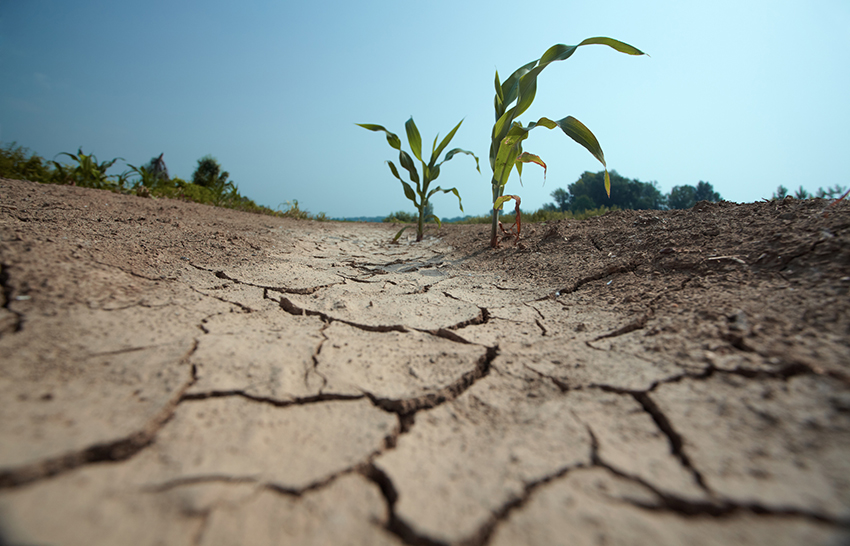

Climate change is widely recognized as the greatest global health threat facing the world in the 21st century.1 Climate change is directly contributing to humanitarian emergencies from heatwaves, wildfires, floods, tropical storms and hurricanes that are increasing in scale, frequency, and intensity.2 The World Health Organization (WHO) estimates that nearly 3.6 billion people, mostly in developing countries, already live in areas highly susceptible to climate change. The WHO also estimates that between 2030 and 2050, climate change is expected to cause approximately 250,000 additional deaths per year, from undernutrition, malaria, diarrhea, and heat stress alone.2
While the physical health consequences of climate change have become apparent, an emerging body of peer-reviewed literature has uncovered the significant toll that climate change has on mental health and well-being of people and communities worldwide.3 A relatively new phenomenon, variously referred to as Climate-Change Anxiety (CCA) or eco-anxiety, has attracted much empirical attention in recent years. Pathogenesis of CCA entails emotional distress caused by the awareness and/or experience of the negative impacts of climate change on the environment and human well-being. People experiencing CCA may find it challenging to cope with the uncertainty and potential future threats associated with environmental changes.
CCA is said to arise from multiple causes, both direct and indirect.4-5 Direct effects include distress immediately following traumatic events like cold waves, floods and drought as seen in the developing world, pushing people towards forcible displacement as local conditions become untenable. Indirect effects include anxiety and trauma related to physical maladies caused by climate change in the form of pervasive food insecurity and deteriorating health parameters resulting from severe malnourishment. In developing countries, these indirect pathways largely operate through a range of social, political, and economic determinants of mental health such as poverty, unemployment, and housing.6
Given its complexity, addressing CCA requires a comprehensive approach that integrates individual coping strategies, community resilience building, and global initiatives aimed at both mitigating and adapting to climate change. To date, the causal mechanisms of CCA and its impact on mental health remain inadequately understood.7 Additionally, psychosocial interventions designed to address the adverse mental health outcomes associated with CCA are currently underdeveloped. Therefore, it is imperative to enhance the science base to better understand the relationship between climate change and mental health outcomes.8 Measures are also needed to promote monitoring and surveillance to assess vulnerability, risk and exposure and, more broadly, to build climate-resilient health systems designed to anticipate, prevent, prepare for, and respond to climate-related risks.9 It is therefore crucial that health authorities and other stakeholders provide support to developing nations in implementing evidence-based policies and plans to prevent widening health inequities resulting from climate change.2
Author Bio:

Qais Alemi, PhD, MPH, MBA
Dr. Alemi is a Professor in the Department of Social Work & Social Ecology. He teaches courses in statistics along with qualitative and quantitative research methods. His research interests include global mental health, namely, investigating the psychosocial needs of populations affected by war and conflict.
References
- The Lancet countdown on health and climate change. https://www.thelancet.com/countdown-health-climate/about
- World Health Organization. (2023). Climate change. Key facts. https://www.who.int/news-room/fact-sheets/detail/climate-change-and-health
- Manning, C., & Clayton, S. (2018). Threats to mental health and wellbeing associated with climate change. In Psychology and climate change (pp. 217-244). Academic Press.
- Berry, H.L.; Bowen, K.; Kjellstrom, T. Climate change and mental health: A causal pathways framework. Int. J. Public Health 2010, 55, 123–132.
- Clayton, S. (2020). Climate anxiety: Psychological responses to climate change. Journal of anxiety disorders, 74, 102263.
- Charlson, F., Ali, S., Benmarhnia, T., Pearl, M., Massazza, A., Augustinavicius, J., & Scott, J. G. (2021). Climate change and mental health: a scoping review. International journal of environmental research and public health, 18(9), 4486.
- Coffey, Y., Bhullar, N., Durkin, J., Islam, M. S., & Usher, K. (2021). Understanding eco-anxiety: A systematic scoping review of current literature and identified knowledge gaps. The Journal of Climate Change and Health, 3, 100047.
- Centers for Disease Control & Prevention. (2019). Climate and health. https://www.cdc.gov/climateandhealth/policy.htm
- Pan American Health Organization. (2023). Climate change and health. https://www.paho.org/en/topics/climate-change-and-health
